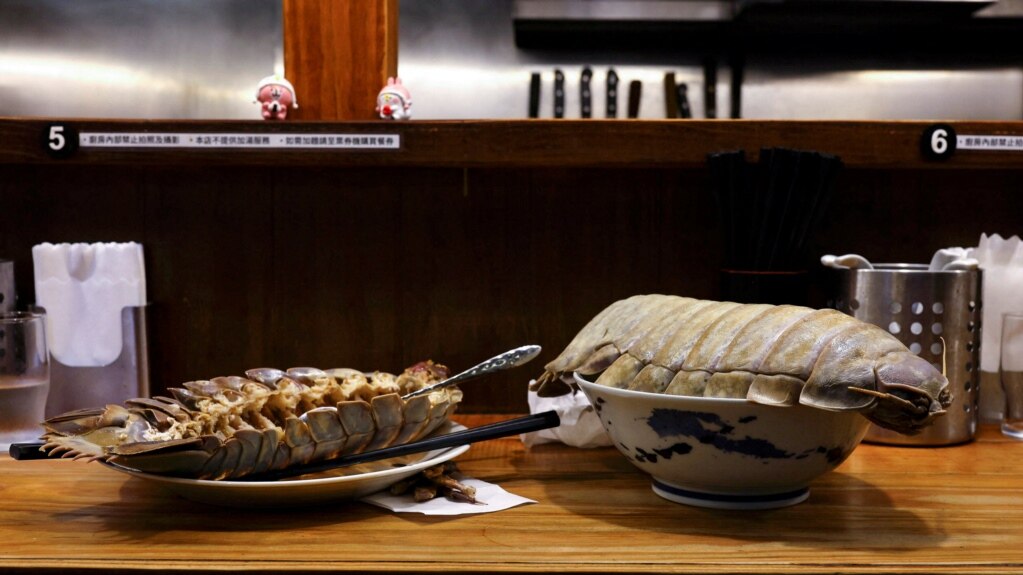Do you enjoy seafood? A restaurant in Taipei, Taiwan, is now serving a meal featuring a 14-legged sea animal called a giant isopod.
The treat has quickly become popular with the public. People are lining up to enjoy a taste, and take pictures of, the giant isopod. It comes in a noodle soup called ramen.
The restaurant, Ramen Boy, began serving the soup May 22. The restaurant had posted on social media that it had "finally got this dream ingredient.” More than 100 people soon joined a waiting list to eat at the restaurant.
"It is so attractive because of its appearance," said the 37-year-old owner of the restaurant, Mr. Hu. He held up a giant isopod while customers took pictures.
"As for the cooking method, we use the simplest way, steam, so there is no difficulty to process it."
The restaurant steams the isopod for 10 minutes. Then it is added to the ramen soup, along with chicken and fish. Each serving costs 1,480 Taiwan dollars, or 48 U.S. dollars.
One restaurant visitor said the meat tastes like a mix between crab and lobster.
Giant isopods are distantly related to crabs and shrimp. They are the largest among the thousands of kinds of animals in the group known as crustaceans, says the U.S. National Oceanic and Atmospheric Administration on its website.
They are usually found about 170-2,140 meters deep in the ocean. Eighty percent of them live 365-730 meters below the sea, Taiwan's Animal Planet said on a Facebook page.
Some environmental experts have expressed concerns over the possible effects of fishing for the isopods. Some experts also warn of possible health risks from eating isopod meat.
But customers at the restaurant are not concerned.
"If … the giant isopods were caught unintentionally like the restaurant owner says they were, everyone should try it if they get a chance," said 34-year-old Digell Huand.
"I am very honored … to taste it," she added as she ate from a bowl of the soup.
Huang Ming-chih is a professor specializing in deep-sea marine life at the National University of Tainan. He warned of possible health risks from eating the isopod. He said the largely unknown species may contain poisonous heavy metals such as mercury.
The 'Bathynomus jamesi' species was recognized officially in Taiwan last year and there is not much data on it, Huang said.
"The best practice would be to do more research ... then allow people to eat, it would be better that way," he added.
I’m Dan Novak.

